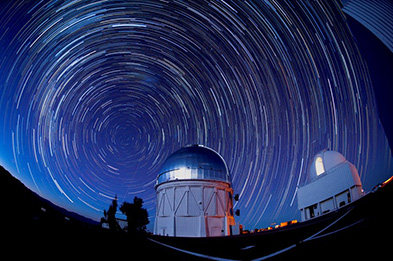
Particle physics experiments for astrophysics research use the cosmos as a laboratory to investigate the fundamental laws of physics. The Computational Science and AI Directorate (CSAID) is currently involved with three main astrophysics experiments: the Dark Energy Survey (DES), the Dark Energy Spectroscopic Instrument (DESI) and the Large Synoptic Survey Telescope/Dark Energy Science Collaboration (LSST/DESC). For DES, CSAID’s responsibilities include data management, image processing, database development and survey strategy software. For DESI, CSAID’s contributions include spectroscopy alignment and the online databases that control the telescope and collect data. For LSST/DESC, CSAID’s contribution is in developing analysis frameworks and supporting survey operations. CSAID is intimately involved with the fundamental aspects of these experiments through a wide array of science working groups.
In addition, CSAID is working on applying artificial intelligence algorithms to tackle complex problems in astrophysics, such as removing weak gravitational lensing signals from the cosmic microwave background, identifying unusual astronomical objects like strong gravitational lenses, extracting physical parameters from unprecedentedly large data sets, and building a self-driving telescope that can figure out the best observations to make on its own.
